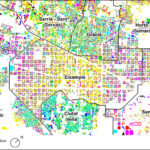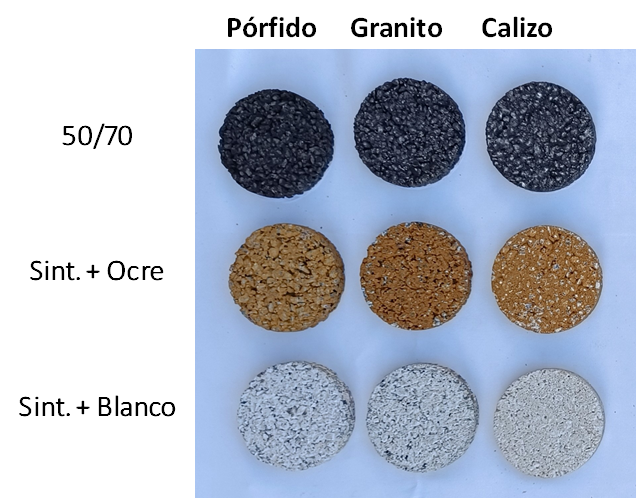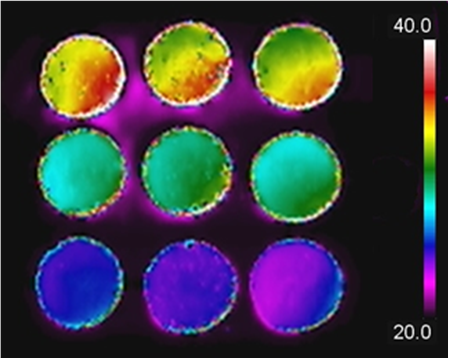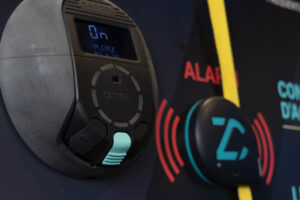
E-MED: Towards a more efficient and sustainable public transport in the Euro-Mediterranean region
October 9, 2025
An interactive map to identify and assess the vulnerability of Barcelona’s housing to extreme heat
October 14, 202513/10/2025
The Construction Materials and Roads (MATCAR) research group at the Universitat Politècnica de Catalunya - BarcelonaTech (UPC) has carried out the RELUM project with the aim of researching and developing innovative solutions to help prevent global warming, through the design of sustainable pavements with reflective and photoluminescent properties, in collaboration with the company Sorigué.
Global warming and urban growth have intensified the phenomenon known as urban heat islands, which cause higher temperatures in cities compared to rural areas. This occurs because materials such as asphalt and concrete have a high capacity to absorb and retain heat. Urban infrastructure materials absorb more solar radiation and release heat slowly, thereby raising the ambient temperature. This phenomenon has negative consequences, as it affects thermal comfort, increases energy consumption, and deteriorates air quality in cities. This situation, together with the growing concern of public authorities to mitigate this effect, has driven research and innovation to develop solutions that foster more sustainable and healthier environments. RELUM was conceived as an innovative response to this challenge.
The project’s objectives were, firstly, to investigate how materials and their combinations in hot asphalt mixtures influence solar reflectance and the surface temperature reached by the pavement as a result of solar radiation. Secondly, to design pavements with high solar reflectance, that is, with a strong ability to reflect rather than absorb solar radiation. Higher solar reflectance reduces the accumulation of heat in buildings and pavements, thus contributing to lowering the urban heat island effect.
Within the framework of the RELUM project, the potential of reflective pavements has been demonstrated, particularly, ultrafine mixtures with different combinations of aggregates and pigments. The surface temperatures of these materials exposed to sunlight were measured at different times of the year (on very hot, very cold, and mild days) to observe their behaviour under real conditions.
The project revealed that lighter mixtures, made with limestone aggregates, synthetic bitumen, and titanium dioxide pigment, achieved the highest reflectance, reaching 57%, whereas darker mixtures, made with porphyry aggregates and conventional bitumen, showed the lowest reflectance, around 8%. A maximum temperature difference of 22.7°C was recorded between them.
Impact
The results obtained through the project have enabled progress in the development of new reflective pavements that reduce heat absorption and retention, helping to mitigate the urban heat island effect. By lowering ambient temperature, these pavements promote urban sustainability and improve citizens’ well-being.
Budget and Funding
The project received a total budget of €148,580 under the Spanish State Plan for Scientific, Technical and Innovation Research 2021–2023 (TED2021-132077B-I00). It has had a duration of two years (November 2022 – December 2024).
Technology
Sector
You want to know more?
Related Projects
- The Visualisation, Virtual Reality and Graphic Interaction Research Group (ViRVIG) at the Universitat Politècnica de Catalunya - BarcelonaTech (UPC) has participated in the XR4ED project, an initiative that connects the educational technology (EdTech) and Extended Reality (XR) sectors, with the aim of transforming learning and training across Europe.
- The inLab FIB at the UPC has collaborated with Lizcore® for the development of a proof of concept based on artificial intelligence to improve safety in climbing with autobelay devices. The system allows the automatic and accurate detection of risk situations before starting a route.
- Researchers from the Centre for Image and Multimedia Technology of the UPC (CITM) and from the DiCode research group (Digital Culture and Creative Technologies Research Group) of the Universitat Politècnica de Catalunya – BarcelonaTech (UPC) have worked on the project The Eyes of History, an initiative of the Catalan Agency for Cultural Heritage that offers an immersive view of Catalan cultural heritage. It is especially aimed at the first and second cycles of secondary education and was created to bring heritage into the classroom. Its goal is to bring the history and monuments of Catalonia closer in a vivid and innovative way, using tools such as virtual reality and new museographic narratives.
- City and Play is a social action project coordinated by researchers from the Centre for Image and Multimedia Technology (CITM) and the DiCode research group (Digital Culture and Creative Technologies Research Group) of the Universitat Politècnica de Catalunya – BarcelonaTech (UPC), the Universitat Oberta de Catalunya (UOC) and the University of Barcelona (UB), and funded by Barcelona City Council. The aim of the project is to promote civic competences and reflection on the urban environment among adolescents through the creation of an open framework that uses methodologies based on play, co-creation and storytelling.






